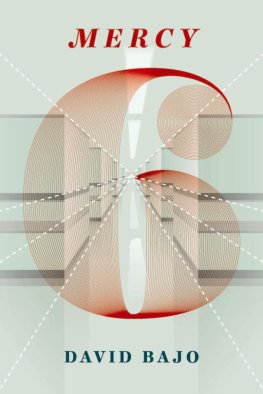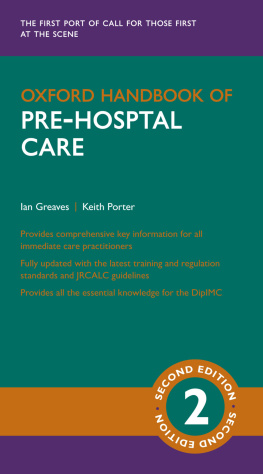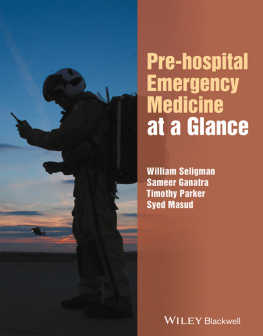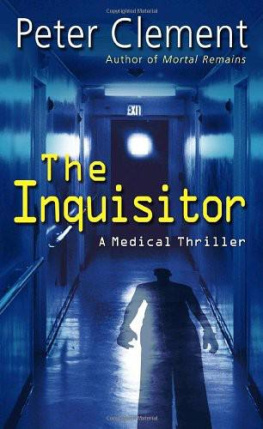Something brushed her cheek. She smelled cloves, something close. Both sensations passed in the night air. Mendenhall might have thought nothing of them, dismissed them as nerves, except that nonvisual hallucinations had come to interest her again, since a man had been brought into the ER last week exhibiting taste, touch, and olfactory alterations brought on by the DTs. He had died before she could finish questioning him. He wore a nice suit, was clean-shaven, the bristles along his nape tapered, pleasant against her fingers. He spoketo someone who was not thereof butterscotch, a hummingbirds throat against his thumb, and the coarse scent of a horses mane.
Peoplenormal, healthy peopleperhaps have more of these than they fully realize. They resist, filter out, reject, reconstruct, disown visual and auditory hallucinations because these indicate abnormality, threaten their sense of self, their standing. She had asked the clean-shaven man if he was describing memories or sensations. He told her they were sensations, clear and new.
She was testing his lucidity as the EMTs hurried the cart to the bed. She knew that this high level of lucidity amid the DTs indicated imminent demise. He died before the cart arrived.
Mendenhall directed everything; she held the mans nape. But it was all procedure. She felt him go flat, that unfailing surrender.
They injected, massaged, shocked, and recorded a lifeless body.
The nurse and the EMTs appeared befuddled. They had enough equipment and meds and knowledge to revive a mummy, at least into a coma. But Mendenhall knew before the cart arrived. She believed in life.
She caressed her cheek, where she had felt the brush in the night, breathed, trying to reclaim the clove scent. But the air was back to mineral. She twisted her heel against the roof surface, still expecting the crunch of gravel. The surface had changed a year ago, refloored with a light industrial tile, good for walking, impervious to the elements. Her heel made no sound, nothing above the traffic hum seven floors below.
She was being watched. The figure she thought of as the Dutchman was on the roof with her, taking a break, standing as usual beside the remains of a telescope fastened to the low wall. The city glow cast him as a bit more than a silhouette. She could see his demeanor, his feigned interest in the horizon, his vague interest in her. She liked vague. That was where science often lurked.
It felt hallucinatory, walking toward him. He was no longer seeking solitudethat was clear. But was she no longer seeking it?
Mendenhall walked into this question, its wonder palpable against the measure of her stride. She drew up next to him, shared his feigned interest in the horizon. He was tall; her eyes were level with his chin.
You dont like the new roof? he asked.
Its okay. She looked at her shoe, twisted the heel against the tile. I just keep remembering the old surface. Keep feeling and expecting it.
Building memory, he replied. My worst enemy. The last word revealed an accent, the e sounds too much alike. Maybe the Netherlands, maybe eastern Europe.
I hate metaphor, she said. Metaphors kill. Life is actual. Death is metaphor.
Im not speaking metaphorically. Buildings are memory. They are composed of and by memory. Buildings are the shape of memory.
If you removed memory from this building, it would collapse beneath us. He remained in profile, watching the nightscape.
That memory is the main conflict in my work. Literally my enemy, that which I must attack and overcome. Or accommodate.
Or surrender to.
He finally looked at her, though he did not turn his shoulders. I never surrender, Dr. Mendenhall.
You know me?
We met last year, though you wont recall. It was in the ER. You were busy. There was blood. He turned fully to her. You are my enemy.
She angled her look.
It is my job to redesign this hospital. Without interrupting. I started with this roof. Last year. His last two words smeared into one, sounding foreign, too short on the a, too deep on the e.
She motioned toward the telescope relic beside him. Whyd you leave that?
I had to. By law. It was part of the original building. The doctor who founded the hospital was an amateur astronomer. In the 1930s you could see countless stars from this roof. Probably the Milky Way. Now you can count them.
They both looked at the sky. There was a lot of black space between few stars.
Why am I your enemy? she asked, still looking at the sky.
Because the ER is my biggest challenge. And you, Dr. Mendenhall, are the ER. I told you this when we first met. I asked you for ideas. But you have no memory of that.
Sorry.
Its okay. I got ideas from you.
How?
I follow you.
She stopped looking at the sky, stopped measuring the distances between the few stars. She looked at him. He stared at the city.
Only here at the hospital. He smiled. Though you always seem to be here.
She waited for him to turn to her. She could tell he was about to turn, a waver in his shoulders. When he did, she asked, What ideas? What ideas did you get?
None that I could use. None yet. Again his last two words smeared into a single foreign sound.
Why not?
Because every time I see something, something I can maybe use, you do something that trumps it.
Trumps?
Sorry. I play cards. He curled his hands around an imaginary shuffle. His fingers were long. But for instance, my main idea. I see that the ER is marred by its very function and space, by the fact that it is a harborcollecting, assigning, treating, sending all at once. Chaos forms, a sense of chaos. So I think if we somehow divide it into smaller areas, areas that are still connected, we eliminate that sense of chaos. Incoming patients feel more like individuals, people waiting dont see the turmoil and trauma. Doctors and staff can focus. We reduce the sense of size, of overwhelm.
She braced her shoulders, not knowing why. It was almost a shiver.
He held up his hand. Dont worry. I rejected this.
Why? she asked. What was trump?
I saw you move from one stretcher to a bed across the bay. I see you do this once or twice a shift. You start to attend to an incoming emergency, something frantic. Things begin to steady, gather around the stretcher as you make decisions. He held his hand palm upward and curled his fingers. Then you suddenly stand straight, freeze momentarily, and hurry to a bed across the bay, to an earlier patient. I see that you catch something, something in your periphery. Your peripheral vision. You figure something out about one case while taking on a new emergence.
I had a mentor, she said. He trained us to do that.
He spun the tube of the telescope relic. The doctor who put this herehe knew. In astronomy its called averted vision. In our field of vision, we see farther and stronger on the peripherymore clearly but without center. We can see the Andromeda Galaxy only with averted vision, while gazing directly at Pegasus. Averted vision is a great asset, responsible for many discoveries. It would be very bad to take that asset away from you.
She felt known. She felt cut. She needed to change the direction if not the subject.
So its back to the drawing board?
Yes. Literally. To save you from metaphor. That killer. He made air circles with an imaginary pencil. Literally I go back to my drawing board.
Are you the one who got rid of the geriatric ward and moved all the nurses stations off center?
Yes.
She flexed her brow, considered him.
You dont approve? he asked.
Oh, I approve. I highly approve. Most times half the hospital is a geriatric ward. And anything that puts nurses in their proper place thrills me. That was cold. That was brilliant. I approve.









